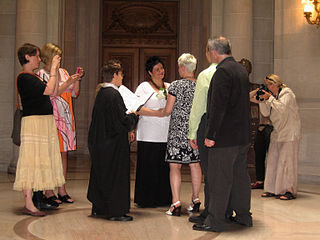In many ways, the debate over same-sex marriage has always focused heavily on the states. In 1995, Utah enacted the nation’s first state Defense of Marriage Act. A year later, then President Bill Clinton signed a federal version of the law.
From that point on, the issue moved quickly. In 2000, Vermont moved to allow civil unions, and four years later, the Massachusetts Supreme Court allowed same-sex marriages, the first state to do so. But by the end of 2004, 20 more states had banned same-sex marriage.
This is the scorecard today: 34 states do not allow same-sex unions, while nine plus the District of Columbia do. Six allow civil unions. Four offer neither marriage nor civil unions but do allow domestic partnerships.
Public opinion remains split as well. A recent Washington Post poll found historical levels of support among the public as a whole for gay marriage. But a recent Pew Research Center survey found a gaping generational divide: 70 percent of “millennial” — 18- to 32-year-olds — support gay marriage while just a third of those over age 50 do so.
Legal tensions in Washington and among the states will be on display at the Supreme Court this week.
On Tuesday, the court will consider California’s Proposition 8. On this question the justices could rule broadly or narrowly: The court could reaffirm a lower court decision striking down the ban, a decision that would legalize same-sex marriages only in California. Or the justices could find Proposition 8 unconstitutional, potentially declaring all similar state bans are as well.
“This legal position does not discriminate against the right of any individual … It is a defense of the legal ability of the people through their elected representatives to make a policy choice.” — Indiana Attorney General Greg Zoeller (R)
The right to determine marriage law — a function historically reserved for the states – underpins the arguments in favor of California’s ban. Proposition 8 was enacted by popular vote, and its supporters say both the state’s ability to limit marriage and the rights of voters to determine that law shouldn’t be infringed upon by the Supreme Court.
The states supporting the ban strike a similar tone. “This legal position does not discriminate,” Indiana Attorney General Greg Zoeller, a Republican, said when announcing the state’s involvement in the case. “It is a defense of the legal ability of the people through their elected representatives to make a policy choice.”
Proposition 8’s detractors, meanwhile, have a simple response: States’ rights don’t include the right to discriminate against gay couples.
More Articles
- Federal Reserve: Financial Stability in Uncertain Times, A Speech by Governor Michelle W. Bowman
- Veterans Health Care: Efforts to Hire Licensed Professional Mental Health Counselors and Marriage and Family Therapists
- Adrienne G. Cannon Writes: Those Lonely Days
- Jill Norgren Reviews a New Inspector Gamache Mystery: All the Devils Are Here
- Rose Madeline Mula Writes: Look Who's Talking
- Stateline: Fearing Delays and Chaos, Swing States Weigh Early Counting of Mail-In Ballots
- Celebrating 100 Years of Women Voting; Virtual Sessions: United States Capitol Historical Society
- Supreme Court Surprises The Public in LGBTQ Ruling: What is Sex Discrimination?
- Speaker of the House Nancy Pelosi And Donald Trump Last Year
- Elaine Soloway's Hometown Rookie: Mirror, Mirror; Jealous; Terms of Endearment






